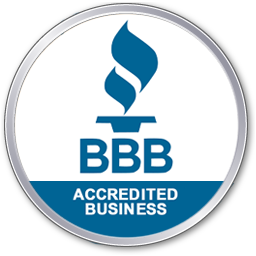Just like all of the other systems in your home, septic tank systems need regular maintenance to ensure they continue working as designed. When your septic system is neglected, oils, greases and solids can build up inside the tank and cause a host of unpleasant problems.
One of the most common causes of a septic system failure is a failed septic drain field. Also known as a leach field or soil absorption field, the drain field is a series of perforated pipes that slope down from your septic tank to naturally remove harmful bacteria and viruses from wastewater. This wastewater enters the drain field from your septic tank, which stores solids (known as sludge) and floatable matter like oil and grease (known as scum) until bacteria can break them down. Once it’s passed through the drain field, the liquid is then expelled into the ground.
Because your septic system is what helps to safely treat and remove wastewater from your home, it’s important that the drain field is able to efficiently do its job. Here, we’ll cover how to tell if your drain field might be failing, the reasons it might be failing and how to get it back to running as expected.
Signs of a Failed Drain Field
While you might not always see an obvious problem with your drain field just by visually inspecting the pipes, there are some tell-tale signs that can help you determine whether a closer look is needed. If you notice any of the following, it could be an indication that your soil absorption field isn’t functioning properly.
- Grass over the leach field is greener than the rest of the yard: If your drain field leaks faster than it’s supposed to or has waste improperly stored inside, the extra water and nutrients will likely cause the vegetation around the pipes to thrive. This could come in the form of greener grass or increased plant growth.
- The surrounding area is wet, mushy or even has standing water: If you notice puddles or pooling in the area of your yard that houses your leach field, it could mean that there are cracks or breaks in the pipes. These cracks allow an excess of water to be released into the drain field that can’t be absorbed. Standing water or muddy ground could also be an indication that your drain field is clogged, which can cause water levels in your septic tank to rise.
- Sewage odors are coming from your drains, tank or leach field: Sewage odors are one of the first signs that your drain field might be failing. Any time you notice a new sewage smell near your drains or part of your septic system, it’s important to contact a professional immediately for an inspection. It could also mean that your drain field pipes need cleaning to avoid future problems.
- Slow running drains or backed up plumbing: Without proper cleaning, septic drain field pipes can become clogged, making it difficult for wastewater to push through. When a clogged or crushed drain field pipe isn’t quickly addressed, it can push sewage back up into your home.
Any time you notice something different about your drains or leach field, it’s best to have it inspected as soon as possible. The longer a problem persists, the more expansive (and costly) it will become.
What Causes a Drain Field to Fail?
Now that you know what to look for in relation to a failed septic drain field, you might be wondering what causes it to fail in the first place. Two common culprits include:
- Draining chemicals, grease, paint and other complex substances down drains: These materials should never be sent down your drain, as they can easily harden to form clogs or cause changes in the natural biological process that occurs inside your septic system.
- Excessive water use inside your home: Using too much water at one time can overload your septic system, sending more water through the pipes than your leach field can absorb. This can cause water backup in your yard or septic system. Leaking toilets and faucets can also be a problem due to running water constantly being sent into your drain field.
The good news is that both of these things are easy to avoid. While regular maintenance of your septic system is the best way to avoid a failed septic drain field, there are a few other habits you can establish to help prevent a failure. These include:
- Limiting your water use: For example, avoid running your dishwasher, throwing in a load of laundry and showering at the same time. It’s best to space out activities that involve large amounts of draining water.
- Fix leaky appliances: It’s easy to ignore a leaky faucet, but it’s best to fix the problem before it turns into something you can’t ignore.
- Clean and pump your septic tank regularly: This helps flush out any built-up waste that could lead to a clog.
- Don’t send chemicals, grease or other problematic substances down the drain: These substances not only increase your likelihood of a clogged soil absorption field – they’re also bad for the environment.
- Cover your drain field: Make sure your leach field is well covered with grass to prevent soil erosion and is located away from other systems that direct water away from your home, such as gutters and downspouts.
What To Do If Your Drain Field Fails
Even with proper maintenance and preventive strategies, it’s possible for your drain field to fail. A failed septic system can contaminate groundwater and local drinking water sources with harmful bacteria, and it can even back up sewage into your home.
If you have reason to believe your drain field might be failing, it’s important to contact a professional immediately. Alpha Environmental’s team of experienced professionals can inspect your septic system, identify any potential problems and provide next steps for any needed repairs. We also offer regular maintenance, such as pumping and cleaning, to help keep your system running smoothly. Contact us today for your septic system needs.




